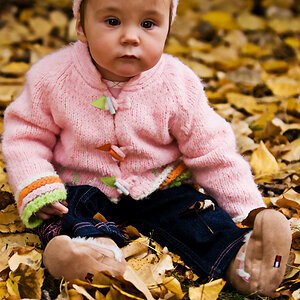drdan
TPF Noob!
- Joined
- Feb 18, 2004
- Messages
- 549
- Reaction score
- 0
- Location
- Colorado Springs, CO
- Website
- thegoodsleepstore.com
Yes but what if the camera did not capture the alpenglow as it really looked to you but you can get it to look like what you really saw by subtle manipulation in PS. That sounds like exactly what Ansel Adams was doing to me.
If I'm taking a picture of Alpenglow it's because I want to share that experience with someone who wasn't there. Despite my best efforts the camera does not have the range of the human eye and may not be able to get all of the "real" look that I experienced. If I can use PS to get closer to what I actually experienced then that is a MORE accurate represention of the moment I was trying to preserve, not less and not fake.
It seems like people sometimes assume that what the camera captured is true "reality" and if it doesn't measure up to what we saw then it's our memories that are faulty. Well, I don't think that's necessarily so. Even people who know the camera can't "see" everything the human eye can, are adamant that only what the camera recorded is real. I want the person viewing the picture to experience what I experienced no matter how I get there.
A good example is trying to get shots of late afternoon sun in aspen groves with a lot of lush greenery underneath. It's been my experience that this is difficult to photograph well primarily because the camera cannot adapt to see everything with all the contrast of light and shadow, white trunks and dark green leaves and undergrowth like the human eye can. I'm quite sure there are people who can use their camera more effectively than I in such conditions but IMO PS can allow a photographer to get a more accurate representaton of what it's like in a grove like that than the camera alone can.
As has been said, some film does not give "true" colors. That's also true of digital sensors. My Sony, for instance, tends to give pictures that are slightly too cool and green under certain conditions. Which would be more fake, correcting those colors closer to how they really look or letting them stand as they came from the camera?
I certainly understand the distaste for pictures that are supposed to be reality but are manipulated to the point that they don't really resemble what you would see in person. There are shots of Hawaii on a certain website that are all oversaturated. They kind of catch the eye at first but are irritating to use as a monitor background, mostly because they just don't feel or look "right" after a short while.
I know use of PS can get into some very gray areas. That doesn't mean that all enhancements are fake however.
If I'm taking a picture of Alpenglow it's because I want to share that experience with someone who wasn't there. Despite my best efforts the camera does not have the range of the human eye and may not be able to get all of the "real" look that I experienced. If I can use PS to get closer to what I actually experienced then that is a MORE accurate represention of the moment I was trying to preserve, not less and not fake.
It seems like people sometimes assume that what the camera captured is true "reality" and if it doesn't measure up to what we saw then it's our memories that are faulty. Well, I don't think that's necessarily so. Even people who know the camera can't "see" everything the human eye can, are adamant that only what the camera recorded is real. I want the person viewing the picture to experience what I experienced no matter how I get there.
A good example is trying to get shots of late afternoon sun in aspen groves with a lot of lush greenery underneath. It's been my experience that this is difficult to photograph well primarily because the camera cannot adapt to see everything with all the contrast of light and shadow, white trunks and dark green leaves and undergrowth like the human eye can. I'm quite sure there are people who can use their camera more effectively than I in such conditions but IMO PS can allow a photographer to get a more accurate representaton of what it's like in a grove like that than the camera alone can.
As has been said, some film does not give "true" colors. That's also true of digital sensors. My Sony, for instance, tends to give pictures that are slightly too cool and green under certain conditions. Which would be more fake, correcting those colors closer to how they really look or letting them stand as they came from the camera?
I certainly understand the distaste for pictures that are supposed to be reality but are manipulated to the point that they don't really resemble what you would see in person. There are shots of Hawaii on a certain website that are all oversaturated. They kind of catch the eye at first but are irritating to use as a monitor background, mostly because they just don't feel or look "right" after a short while.
I know use of PS can get into some very gray areas. That doesn't mean that all enhancements are fake however.


![[No title]](/data/xfmg/thumbnail/32/32719-7d42e7d7077540fabb3fa0275a99899a.jpg?1619735625)
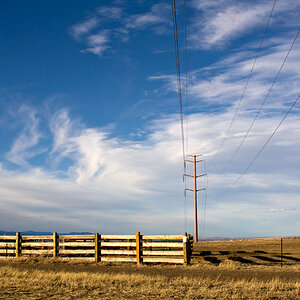
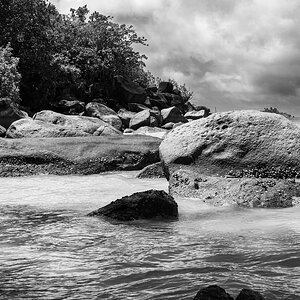
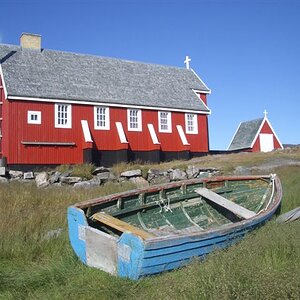
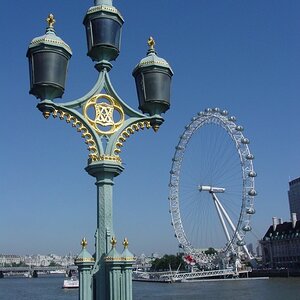
![[No title]](/data/xfmg/thumbnail/32/32718-19d5f7764b6f43f6cec5a67701261560.jpg?1619735624)
![[No title]](/data/xfmg/thumbnail/32/32633-d833b07b761b12c973eb0d27505935d4.jpg?1619735553)
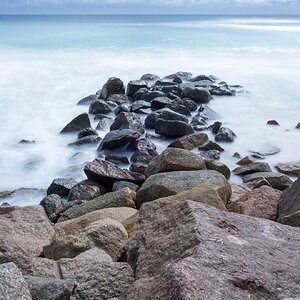
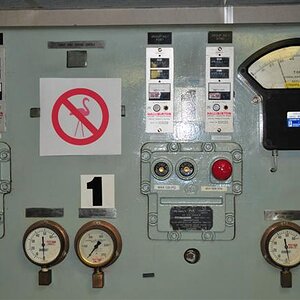
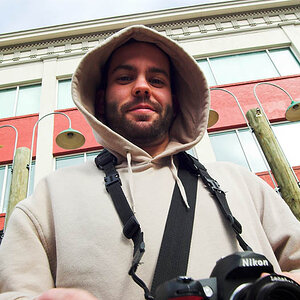
![[No title]](/data/xfmg/thumbnail/32/32631-60d0db057ee085953a0921e337396654.jpg?1619735552)
